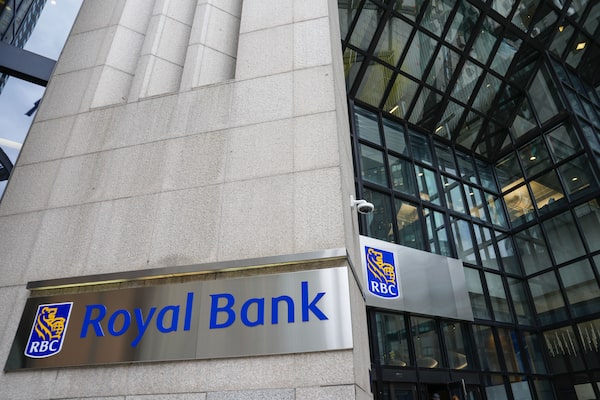
The shareholder resolution filed by the New York City Employees’ Retirement System and Teachers’ Retirement System asks that the bank fully report a ratio of how its clean energy funding compares to its fossil fuel funding.Andrew Lahodynskyj/The Canadian Press
New York City pension funds are pushing Royal Bank of Canada RY-T to disclose more details on its clean energy funding.
The shareholder resolution filed by the New York City Employees’ Retirement System and Teachers’ Retirement System asks that the bank fully report a ratio of how its clean energy funding compares to its fossil fuel funding.
The pension systems have filed similar resolutions against some of the biggest U.S. banks including Citigroup, JPMorgan Chase and Morgan Stanley as part of efforts to push for more action on climate change.
City comptroller Brad Lander said in a statement Wednesday that banks aren’t living up to their net-zero commitments.
“Despite all their talk, the big banks have made little progress in the energy finance transition over the past couple of years.”
Lander said reporting on lending ratios would bring transparency to how well banks are stepping up.
BloombergNEF estimates that in 2022, RBC provided 37 cents in clean energy funding for every dollar to fossil fuels, while globally, the ratio for banks stood at 0.73:1.
The research group estimates that banks need to bring clean energy funding up to a 4:1 ratio by 2030 to limit warming to 1.5 degrees C.
RBC spokesman Andrew Block said in a statement that the bank is committed to its net-zero target, and is working with its clients to bring emissions down, not just get them off the books.
“RBC Capital Markets intends to prioritize capital and support to clients who are actively engaged in the energy transition and executing or working toward robust transition plans.”
He said the bank appreciates the opportunity to engage with shareholders on a shared desire to help ensure a successful transition to net-zero.
Stand.earth climate finance director Richard Brooks said in a statement that it is reckless for big banks like RBC to over-finance dirty energy and underfund clean alternatives after the hottest year on record.
“We commend New York City’s leadership, as the home of Wall Street, to push big banks to be part of the solution and stop exacerbating the problem.”